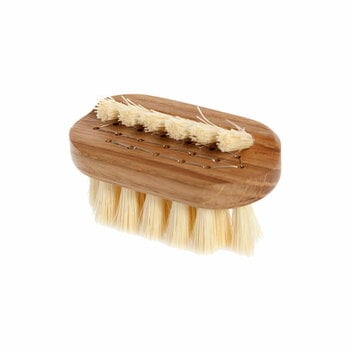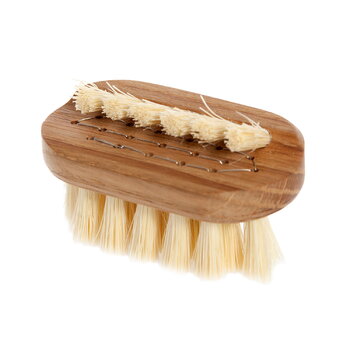Iris Hantverk’s Lovisa nailbrush is handmade from oil treated oak and Tampico fibre that is known for its elasticity and waterproof quality. The long bristles are perfect for cleaning hands and nails while the stiffer bristles on the top of the brush remove dirt from under the nails. The Lovisa nailbrush is a beautiful addition to any bathroom and compact enough to fit in a toiletry bag.
Founded already in the late 1900th century, Iris Hantverk is known especially for its high-quality brushes, made from natural materials by visually impaired craftsmen in Sweden and Estonia.








